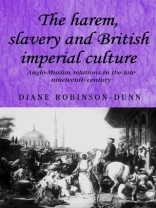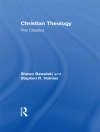This book focuses on British efforts to suppress the traffic in female slaves destined for Egyptian harems during the late-nineteenth century. It considers this campaign in relation to gender debates in England, and examines the ways in which the assumptions and dominant imperialist discourses of these abolitionists were challenged by the newly-established Muslim communities in England, as well as by English people who converted to or were sympathetic with Islam. While previous scholars have treated antislavery activity in Egypt first and foremost as an extension of earlier efforts to abolish plantation slavery in the New World, this book considers it in terms of encounters with Islam during a period which it argues marked a new departure in Anglo-Muslim relations. This approach illuminates the role of Islam in the creation of English national identities within the global cultural system of the British Empire.
This book would appeal to those with an interest in British imperial history; Islam; gender, feminism, and women’s studies; slavery and race; the formation of national identities; global processes; Orientalism; and Middle Eastern studies.
قائمة المحتويات
List of figures
Preface and acknowledgements
1. Introduction
2. From desert caravans to Red Sea coasts: the British anti-slavery campaign in Egypt
3. Networks of support: English activism and slavery redefined
4. ‘The British Turk’ and the ‘Christian Harem’: imperial ideology in English gender politics
5. Islam in England
6. Conclusion
List of Abbreviations
Select Bibliography
عن المؤلف
Diane Robinson-Dunn is a Professor of History at the University of Detroit Mercy












